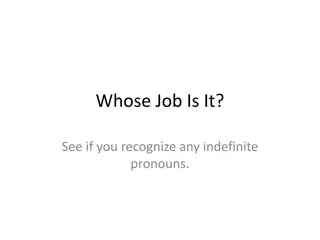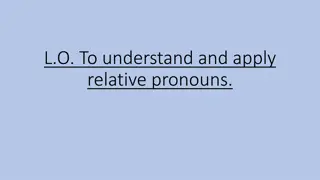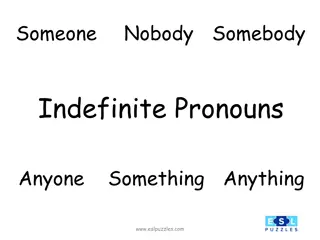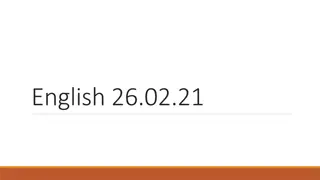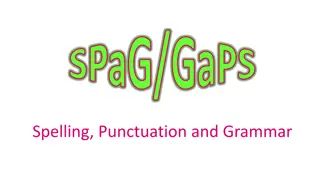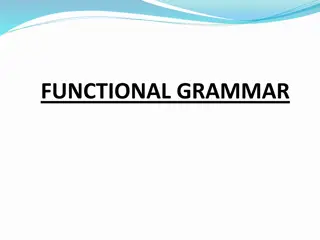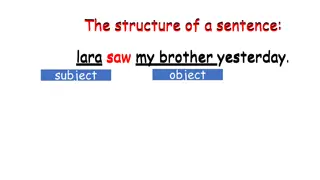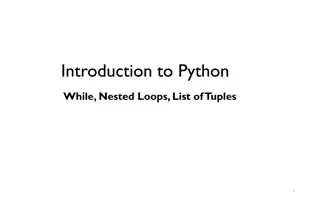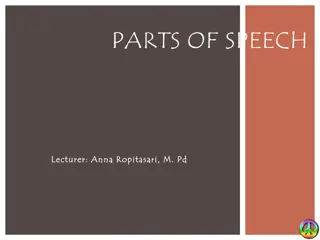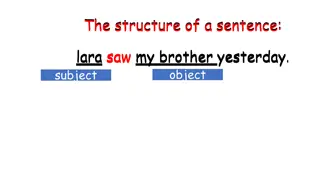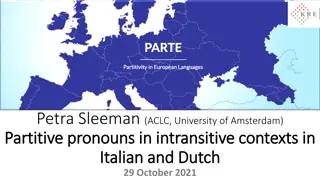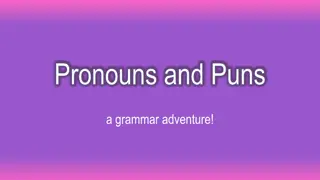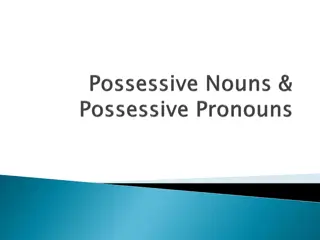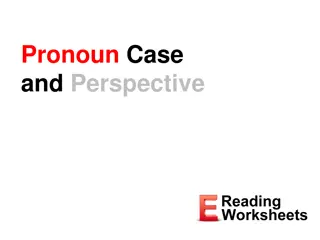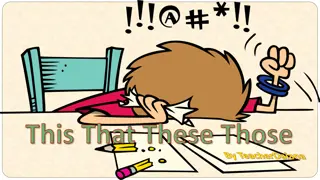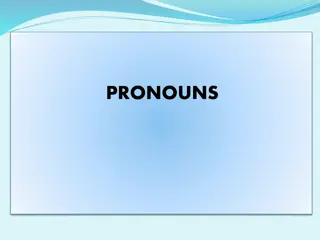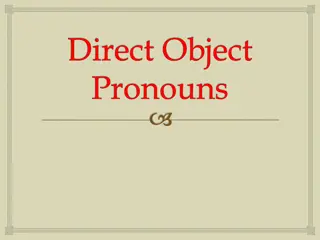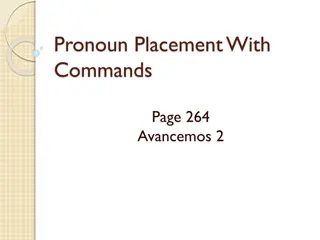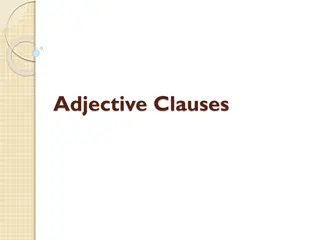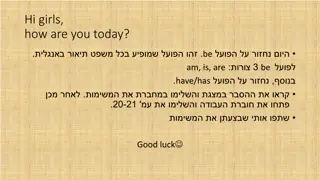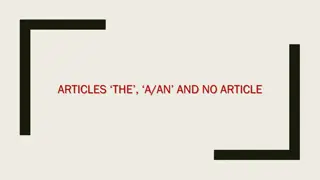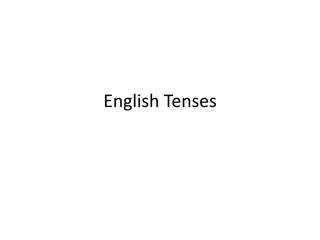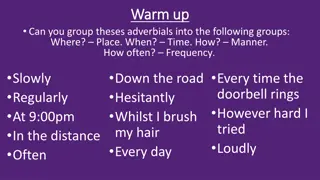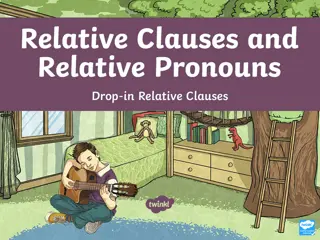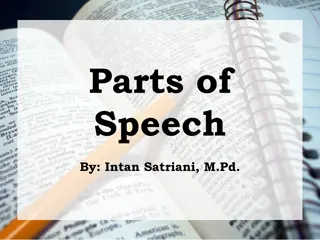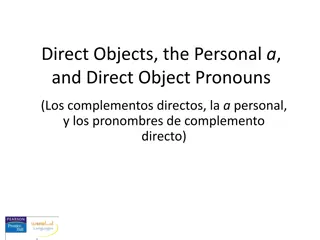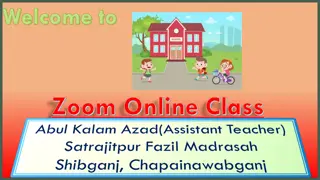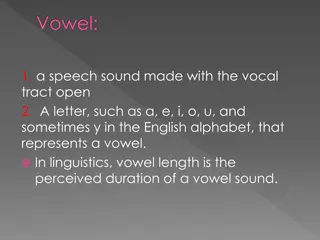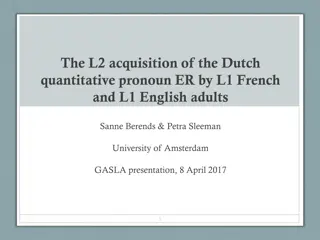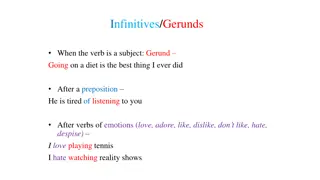Understanding Indefinite Pronouns in English
In English grammar, indefinite pronouns are used to refer to unnamed people, things, or places. They can be affirmative, negative, or used in questions. Examples like "some," "any," and their variations are common in everyday conversations. Learn how to use them correctly to convey the intended meaning.
Download Presentation

Please find below an Image/Link to download the presentation.
The content on the website is provided AS IS for your information and personal use only. It may not be sold, licensed, or shared on other websites without obtaining consent from the author. Download presentation by click this link. If you encounter any issues during the download, it is possible that the publisher has removed the file from their server.
E N D
Presentation Transcript
Use indefinite pronouns to talk about unnamed people, things or places. Use indefinite pronouns to talk about unnamed people, things or places.
SOME Affirmative SOME Affirmative ANY Negative and questions ANY Negative and questions NO The structure is affirmative, but the meaning is negative. NO The structure is affirmative, but the meaning is negative. Ex. I need some money. Neg: I don t have any money. Que: Is there any milk in the fridge? Ex.I have no money.
We can use SOME, ANY and add THING, BODY, ONE SOME, ANY and NO NO THING, BODY, ONE or WHERE WHERE
Affirmative: We have something in common. Negative: There isn t anything in the fridge. Question: Do you have anything in your bag? No: We have nothing to do!
Affirmative: I need somebody to help me. Negative: I don t know anybody in this party! Question: Do you know anybody from America? No: I know nobody! I m new here.
Affirmative: She lives somewhere in Sydney. Negative: I don t know anywhere in Europe. Question: Is there anywhere we can go and have a snack? No: She has nowhere to go.
People People Things something Things Places somewhere Places some- someone somebody any- anybody no- nobody every- everyone everybody anyone anything anywhere no one nothing nowhere everything everywhere
https://create.kahoot.it/details/bcc5cd1a- cc0e-4eae-94ca-1e4f489ffa88 https://create.kahoot.it/details/31c22cd8- a985-4f25-ac3e-d60a5b627ca4 https://www.youtube.com/watch?v=NN4Gj- 13rs0 https://www.youtube.com/watch?v=o9qs7jJf usM


